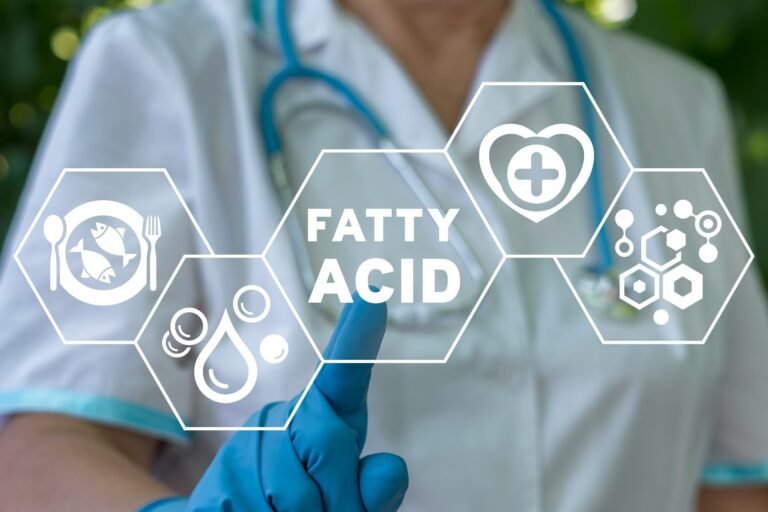The research highlights modest associations between fatty acid consumption and kidney stone prevalence, highlighting the need for sophisticated dietary strategies.
Study: Associations between dietary fatty acids and kidney stones. Image credit: Panchenko Vladimir/Shutterstock.com
In a recent article at Scientific Reportsresearchers investigated the relationship between dietary fatty acid intake and the likelihood of developing kidney stones among adults in the United States.
Their findings show that people who consume more polyunsaturated fatty acids (PUFA), monounsaturated fatty acids (MUFA) and saturated fatty acids (SFA) may have a higher chance of developing kidney stones.
Background
Kidney stones have become a growing global health problem, with rising incidence rates affecting both healthcare systems and individuals’ quality of life.
Kidney stone development involves several factors, including genetic predisposition and environmental influences, specifically dietary habits. Addressing these modifiable risk factors is crucial, particularly in developed countries where prevalence is higher.
Diet plays an important role in kidney stone formation. Experts universally recommend high levels of fluid intake, while other dietary components have mixed results.
While a balanced calcium intake helps prevent some stones, too much animal protein and sodium increase the risk. Diets rich in whole grains, vegetables, and fruits may provide protective benefits by altering urine acidity and reducing stone-forming minerals.
However, research on the relationship between kidney stones and dietary fatty acid intake remains limited, particularly in large-scale population studies. More research is needed to provide clearer dietary guidelines for kidney stone prevention.
About the study
This study investigates the relationship between dietary intake of fatty acids and the prevalence of kidney stones using data from the National Health and Nutrition Examination Survey (NHANES) from 2007 to 2018.
The researchers examined how PUFAs, MUFAs, and SFAs affect kidney stone risk in various health subgroups and demographics, diabetes status, gender, age, and body mass index (BMI).
Participants’ dietary intake was assessed via 24-hour dietary recall interviews. Logistic regression models analyzed the association between kidney stones and fatty acid intake, adjusting for age, sex, race, energy intake, and other health-related variables. Subgroup analyzes explored how these associations differed between different population groups.
Findings
In this study, 30,716 adults were analyzed to investigate the relationship between the variables of interest. Among the participants, 9.51% had a history of kidney stones.
People with kidney stones were generally older, male and had lower levels of education, physical activity and water intake. They also showed higher rates of diabetes, hypertension, smoking, BMI and energy intake.
The analysis revealed a positive correlation between increased intake of PUFA, MUFA and SFA and higher odds of developing kidney stones. In fully adjusted models, each 10-gram daily increase in SFA, MUFA, and PUFA intake increased the odds of kidney stones by 22%, 10%, and 21%, respectively.
Subgroup analyzes showed consistent positive associations across age, sex, BMI, and diabetes status categories. Specifically, people with diabetes showed a stronger relationship between SFA intake and kidney stones, suggesting an increased susceptibility.
This may be due to diabetes-related changes in fat metabolism and urine composition. Correlations for MUFA and PUFA showed little variation, with PUFA showing a stronger effect in men, possibly due to hormonal or metabolic differences.
Specific fatty acids such as arachidonic acid were associated with a higher risk, while omega-3 fatty acids such as docosahexaenoic acid and eicosapentaenoic acid showed protective effects.
These long-chain fatty acids are found primarily in oily fish and are known for their anti-inflammatory properties and other health benefits, including supporting brain and heart health.
Sensitivity analyzes confirmed that the inclusion of additional dietary characteristics did not change the main findings, highlighting the role of dietary fatty acids in kidney stone formation.
conclusions
Overall, the findings from the study showed that higher intake of these fatty acids was associated with an increased risk of kidney stones in several subgroups, including BMI, sex, age, and diabetes status.
Compared to previous research, this study stands out for its focus on the distinct roles of different fatty acids in kidney stone formation. Unlike previous studies that looked at general dietary patterns, this research provided more specific information.
For example, previous studies observed gender differences in dietary effects on kidney stone development, aligned with the current findings.
Researchers have proposed several mechanisms by which fatty acids may affect kidney stone risk. SFAs may affect kidney function and promote stone formation through increased calcium and oxalate excretion. MUFAs, despite their general cardiovascular benefits, could affect kidney stones through their role in metabolism and inflammation.
The balance between omega-3 and omega-6 PUFAs was also important, with a higher ratio of omega-6 to omega-3 being associated with increased risk.
While the study benefits from a large, diverse sample and comprehensive analysis, it is limited by its cross-sectional design and reliance on self-reported dietary data.
Further longitudinal research is needed to confirm these findings and inform dietary recommendations for kidney stone prevention.
